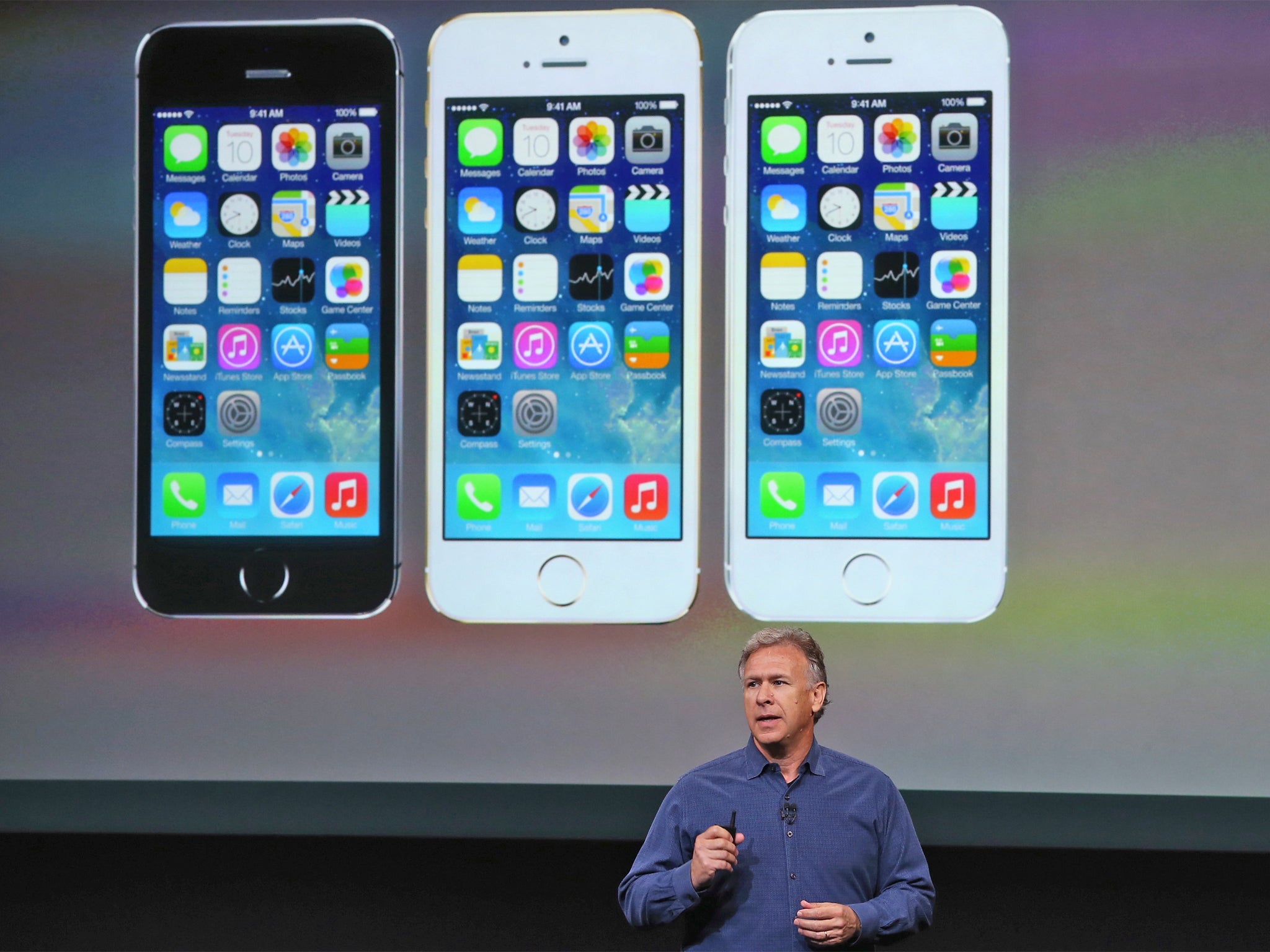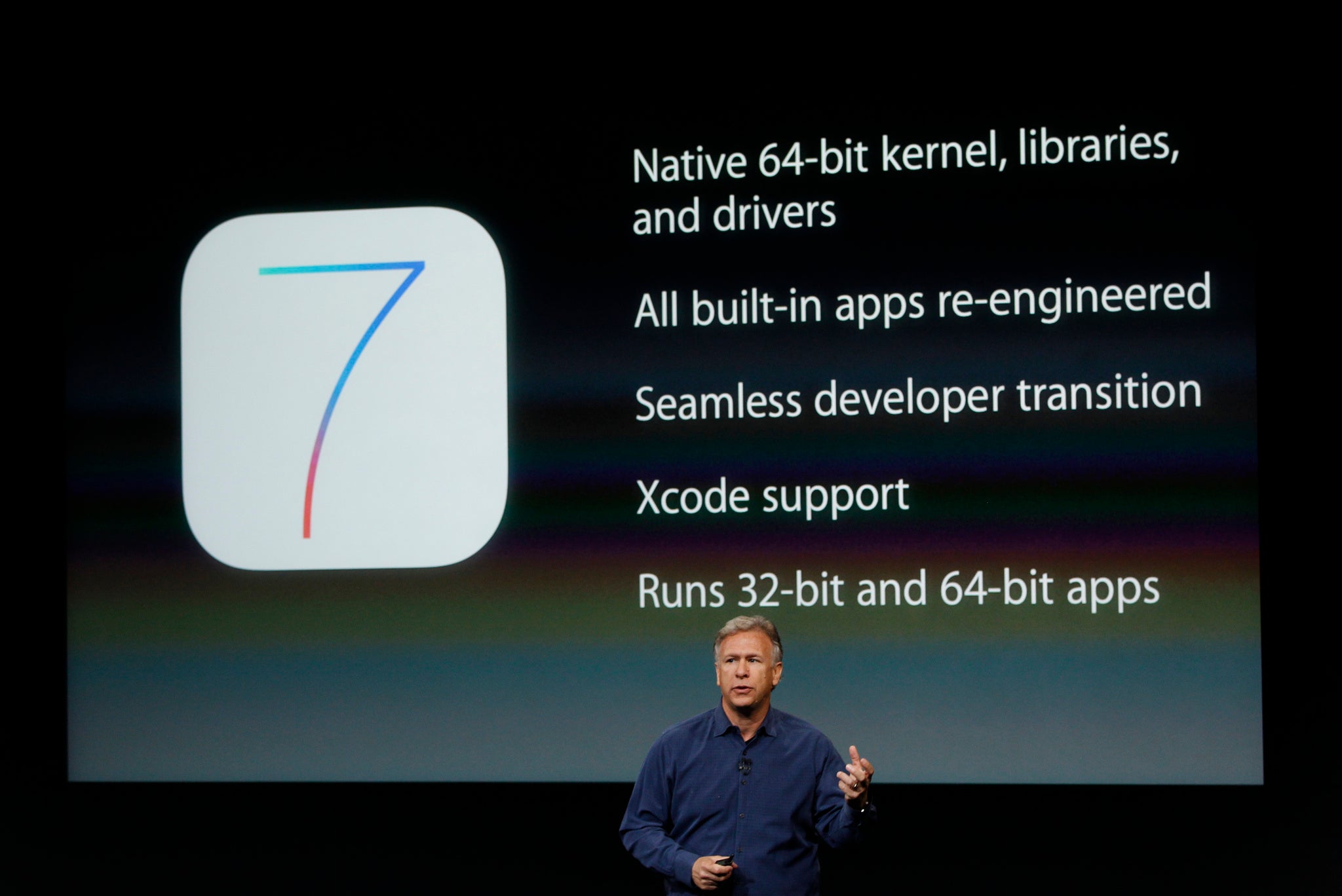iPhone 5S: What is a 64-bit processor and why is Apple so excited about it?
The new iPhone 5S comes with a souped-up processor but experts are sceptical about its utility for the average user

The launch of Apple’s new iPhone 5S focused heavily on the handset’s new 64-bit A7 processor, with the company boasting that this new chip would offer “desktop-class architecture” to users
Just days later rival phone-maker Samsung have jumped onto the 64-bit bandwagon and declared that they had plans to use similar chips in the future.
In an interview with the Korea Times newspaper Samsung’s co-chief executive Shin Jong-kyun said the update would not be “in the shortest time, but yes, our next smartphones will have 64-bit processing functionality."
However, despite all this interest most of us are still scratching our heads wondering what a 64-bit processor is and why we might want it in our phones. The quick answer to the first question is to agree with Apple: it is indeed a faster sort of processor (see below for a more detailed explanation), but puzzling out the second question is more complicated.
The general consensus is that by bumping up the iPhone’s processor to 64-bits Apple is making a play for the future. Benefits for the average user will initially be minimal and mainly involve keeping iOS 7 (the latest version of Apple’s mobile operating system) up to speed, but in the future, a 64-bit chip will also help bring the operating systems on Apple’s tablets and mobiles closer to the PC experience. But let’s begin with the bits.
32 or 64: what are bits and why should you care?
In the context of processors, the number of bits is a base-line for how much information can be handled by the processor at any one time. This makes 64-bit technology sound like it’s twice as fast as 32-bits but the reality is more complicated than that.
One analogy that seems to have originated on Reddit (and subsequently circulated via The Next Web) is to imagine the processor as a librarian looking after the big library that is your phone. This librarian has 32 assistants that fetch books for him, though each can only get one title at a time.

If a customer comes in and ask for 65 books on, say, dinosaurs, then this takes the assistants three trips to carry out. One trip to grab the first 32 books, a second trip to bring the tally up to 64, and one final trip, just for that last book.
Now, if the librarian had 64 assistants then fetching those 65 books would be a third faster (it would only need two trips – one for the first 64 books, and one for that last book) but it wouldn’t be twice as fast. Scale up these numbers though and assistants become even more useful: a customer wanting 256 books would be served twice as fast by 64 assistants, as compared to 32.
The same is true of bits, but there are still two major barriers stopping the iPhone 5S suddenly zooming off into dinosaur-book heaven (or whatever it is you do with smartphones nowerdays). Firstly, programs have to be upgraded to take advantage of 64-bit architecture: they don’t scale up by themselves and although iOS 7 might benefit from those extra bits, it’ll be a while until other developers make the effort.
Secondly, although 64-bit processors allow operating systems to use more than 4GB of RAM (the limit available to 32-bit operating systems) phones just don’t have that much RAM yet. Apple doesn’t publicise the amount of RAM in its phones (though the iPhone 5 had 1GB) but even Samsung’s latest Galaxy Note III only has 3GB.

So why introduce 64-bit for the iPhone 5S?
The answer is the steady convergence of our PCs and mobile devices. The internet is increasingly closing the gap between using our phones and using ‘our computers’, making our online experience increasingly seamless across different platforms.
Most high-end Macs and PCs currently being sold already run on 64-bit operating systems and by switching their phones over now, Apple is preparing for a future where the same app runs on your both mobile and your laptop or desktop. The app ecosystem on iPhones has been hugely profitable for Apple; why wouldn’t they want to duplicate that success on iMacs and Macbooks?
Writing for PCMag, Sascha Segan offers the succinct analysis that “by unifying iOS and Mac OS with Xcode developer tools in a 64-bit space, Apple could once again leap ahead of Microsoft and Google.”
The 64-bit processor might not provide the instantaneous revolution that Apple’s marketers insist on branding every new product with, but it does hint at a mature company with one eye on the future and a step ahead of the competition.
Join our commenting forum
Join thought-provoking conversations, follow other Independent readers and see their replies
Comments
Bookmark popover
Removed from bookmarks